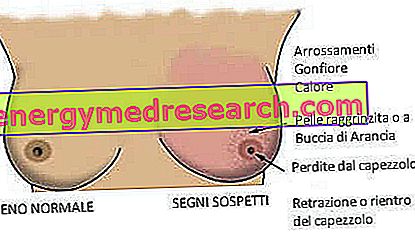See also: peanut butter cake
Peanut butter is a food preparation based on ground peanut seeds. It is a creamy product, rich in fats and particularly widespread in the United States, where annual per capita consumption is nearly one and a half kilograms. In Italy, on the other hand, despite the slow decline of Mediterranean cuisine, sales of peanut butter are struggling to take off.

Production of peanut butter and hydrogenated fats
The peanut seeds are toasted at about 160 °, sprinkled with 2-3% of salt, then they are ground and kneaded. Since the spilled oil tends to separate from the butter and rise to the top of the jar, the food industry adds to the traditional ingredients stabilizing additives, emulsifiers and partially hydrogenated vegetable oils. The latter are a real scarecrow for the health of the consumer, since - if consumed in excess - they predispose to atherosclerosis, coronary heart disease and heart attack. The partially hydrogenated fats, however, are added in minimal quantities, sufficient to harness the triglycerides rich in unsaturated fatty acids, avoid floating the oil on the surface and improve the spreadability of the product. Assuming that the proportion of partially hydrogenated fats is equal to 3%, and considering that these contain about 40% of trans fatty acids, a 30-gram portion of peanut butter contains less than half a gram of hydrogenated fatty acids. The guidelines for healthy eating suggest limiting the intake of these nutrients as much as possible, which should not be consumed in excess of 5 grams per day.
Peanut Butter - Everything You Need to Know
X Problems with video playback? Reload from YouTube Go to Video Page Go to Video Recipes Section Watch the video on youtubeNutritional Properties
Among the nutritional qualities of peanut butter the excellent content in proteins, oleic acid, vitamin B3, vitamin E, magnesium, folic acid, arginine and dietary fiber stands out. If it is produced by preserving the external integuments (the "skin" of the seeds), peanut butter is also rich in polyphenols and resveratrol, the same antioxidant contained in grape skin and red wine.
Peanuts, including the butter obtained from them, are the food most often involved in anaphylactic reactions of a food nature (serious allergic reactions developed by 0.4-0.6% of the population). Another source of concern is the possible contamination with aflatoxins, very dangerous substances produced by some fungi (fungi). Given the dangers to the consumer's health, all the production phases are now followed with particular care.
Finally, we must not forget that peanut butter is a hyperlipidic and high-calorie food; this means that when it is taken as a treat - perhaps instead of spreading chocolate as a delicacy at the end of a meal - it is certainly not good for the line and health. This is due to the combination of several unfavorable elements, such as the small amount of hydrogenated fats, the high caloric intake and the good content of palmitic acid (a saturoaterogenic fatty acid). There are therefore no particular reasons to recommend regular intake of peanut butter; if you like it, you can eat safely, without overdoing it and without forgetting its high calorific value.
Watch the video
X Watch the video on youtube| NUTRITIONAL INFORMATION - PEANUT BUTTER 100 grams * | |||||
| Power | 588 Kcal | Protein | 25.1 g | Iron | 1.87 mg - 23.4% RDA |
| Total lipids | 50.39 g | Arginine | 2.72 g | Football | 43 mg - 4.3% RDA |
| Saturated fats | 10.5 g | Carbohydrates | 19.56 g | Phosphorus | 358 mg - 51.1% RDA |
| Monoins fats | 24.2 g | Sugars | 9.22 g | Magnesium | 154 mg - 36.7% RDA |
| Polyunsaturated fats | 14.16 g | fibers | 6 g | Manganese | 1.46 mg - 63.7% RDA |
| Palmitic acid | 5.9 g | Vitamin E | 9 mg - 59.9% RDA | Potassium | 649 mg - 13.8% RDA |
| Oleic acid | 23.6 g | Vitamin B3 | 13.4 - 83.8% RDA | Copper | 0.47 mg - 47.3% RDA |
| Linoleic acid | 14.01 g | Vitamin B5 | 1.06 - 21.2% RDA | Selenium | 5.6 mcg - 10.2% RDA |
| Cholesterol | 0 g | Vitamin B6 | 0.54 - 41.8% RDA | Zinc | 2.9 mg - 26.5% RDA |
Note: the composition can vary, even considerably, from one product to another, depending on the preparation techniques used and any fortifications (minerals, vitamins, etc.) or depletion (light peanut butter).



